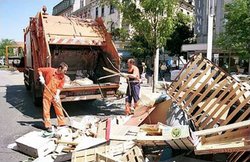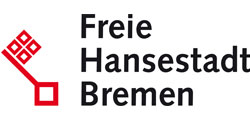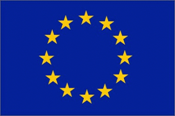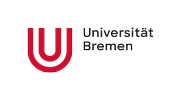ROSA
Efficient Sorting of Bulk Wastes with Robots
ROSA develops and evaluates a concept for the automated sorting of municipal bulk wastes and other large and heavy wastes (e.g. construction wastes). This concept is the basis for a more efficient sorting of bulky wastes and a better resource recovery in this sector.
| Duration: | 01.06.2009 till 28.02.2011 |
| Donee: | German Research Center for Artificial Intelligence GmbH |
| Sponsor: |
State of Bremen
European Union |
| Grant number: | Funded through theApplied Environmental Research Programme ( Land Bremen) and the European Fund for Regional Development (EFRE 2007-2013). EUROPEAN UNION: An Investment in your future - European Fund for regional Development |
| Partner: | Institut für Kreislaufwirtschaft an der Hochschule Bremen – IkwR, Nehlsen GmbH |
| Application Field: | Logistics, Production and Consumer |
Project details
Efficient solutions for the automated sorting of light-weight municipal wastes have been in use successfully for several years. On the other hand, heavy and bulky municipal- and construction wastes are to a large extend still sorted manually due to their weight and volume.
ROSA develops a concept for a system that supports the automated sorting of bulky wastes. The main objective of this concept is to automate the operation of waste handlers as much as possible. The feasibility of the concept, including different alternative system configurations, will be demonstrated and parametrised in a close-to-reality computer simulation.
The concept is based on the use and combination of different sensors, like cameras, 3-D laser range finders, and NIR material sensors. Through the fusion and intelligent analysis of data from theses sensors it will be possible to identify individual objects in agglomerations of waste and to guide the machinery (waste handlers and/or robotic manipulators) accordingly.
A system based on the concept developed in ROSA concept will be able to automate the sorting of bulky municipal- and construction wastes. Compared to the manual processing used today, the speed and quality of the sorting process will improve significantly. In the long run, this will lead to a degree of automation in the sorting of bulky wastes that is similar to the automation achieved in the processing of light-weight municipal wastes today.



